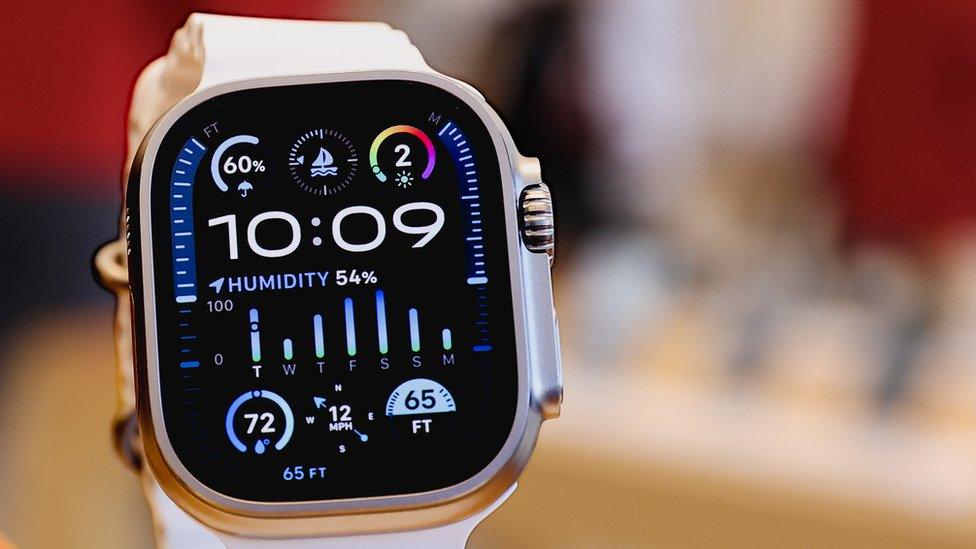Apple watch: US upholds ban on sale over patent dispute
- Published

The ruling affects Apple Series 9 and Ultra 2 watches
Apple has once again been banned from selling two smartwatch models in the US, while a legal battle continues over a patent dispute.
The tech giant was earlier allowed to sell its Series 9 and Ultra 2 watches while proceedings were ongoing - but a US appeals court has since reversed that decision.
Imports of watches are also affected.
On Thursday, Apple said it will release watches without the disputed blood oxygen feature to keep them on shelves.
It is the latest turn in a dispute between the firm and medical technology company Masimo.
Masimo and spin-off Cercacor have accused the iPhone maker of poaching key staff and taking other steps to steal technology it developed to measure oxygen levels in the blood.
In October, the US International Trade Commission said it agreed that Apple had violated some patent rights and issued an order barring certain imports and sales. This had been due to go into effect in late December but was paused while the appeal was underway.
Most versions of Apple's watches, including the Series 9 and Ultra 2, have included the feature since 2020. The SE model does not.
The affected watches cannot be imported from 17:00 ET (22:00 GMT) on Thursday.
Masimo's founder and chief executive Joe Kiani said the ruling showed that "even the largest and most powerful companies must respect the intellectual rights of American inventors and must deal with the consequences when they are caught infringing others' patents".
Apple said that it "strongly disagreed" with the US International Trade Commission's view that it had violated some patent rights.
"Pending the appeal, Apple is taking steps to comply with the ruling while ensuring customers have access to Apple Watch with limited disruption," the company said in a statement.
Apple now has the lion's share of the global smartphone market, as it knocked Samsung off the top spot for the first time in 12 years.
It accounted for more than a fifth of phones shipped last year, according to data from the International Data Corporation released this week.
Related topics
- Published17 January
- Published27 December 2023
- Published18 December 2023